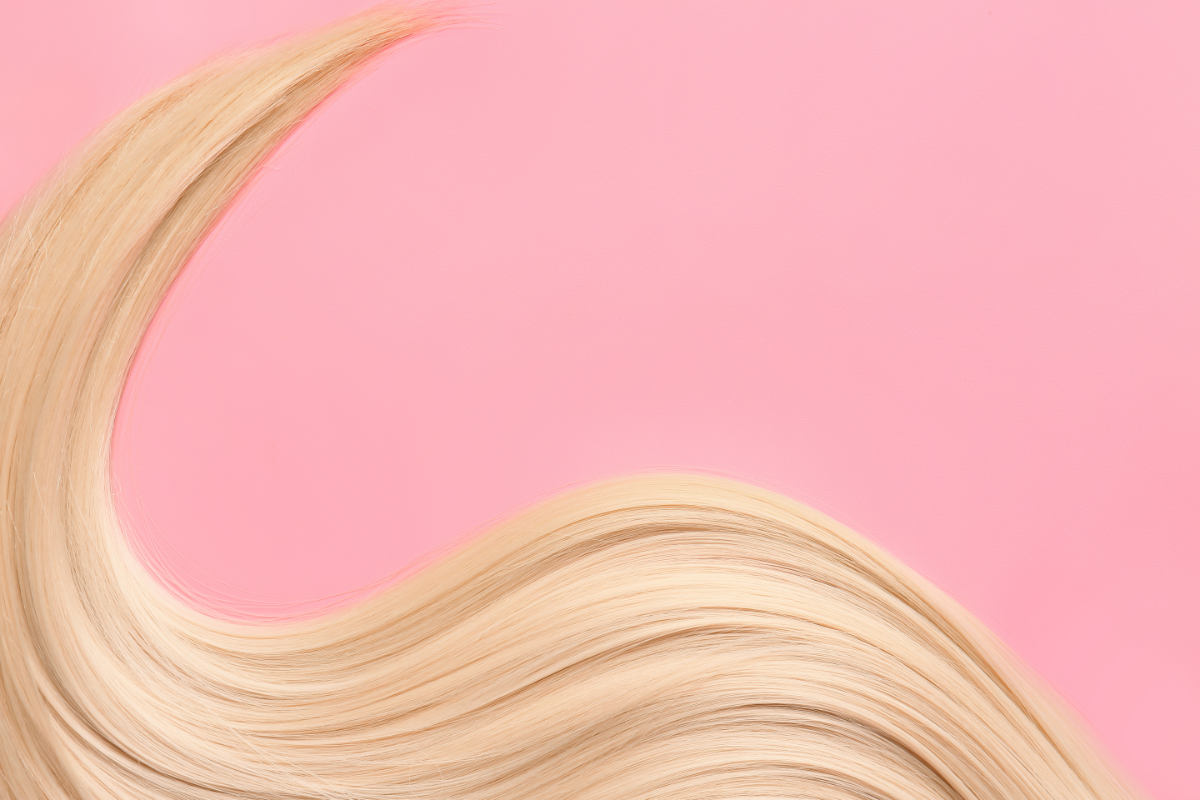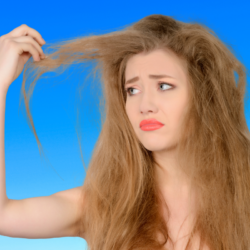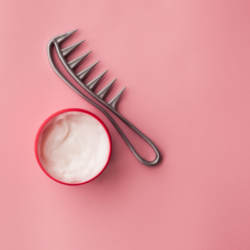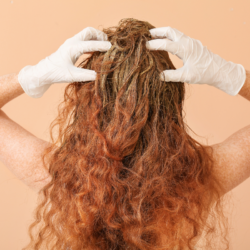Hair loss is a normal phenomenon, especially at the change of season. However, a thinning scalp and hair loss that does not regulate itself are often due to an imbalance in the supply of nutrients. To be strong and beautiful, hair needs need to be nourished from within especially when you notice that you’re losing more hair than normal, that it’s brittle and dull.
Limit hair loss by knowing your hair’s needs
Hair grows from the follicle. However, the follicle is located at the junction of the deep dermis and the hypodermis and is known as the bulb. Hair generally grows by 0.6 to 1.3 cm per month. Provided they are not split and are in good health.
The blood supply is provided by a small vessel that penetrates the hair shaft. It provides the hair with all the vital elements it needs for good health, such as amino acids, mineral salts and vitamins.
Hair is 95% made up of keratin, a fibrous, helical (helix-shaped) protein that is an integral part of the skin and all skin cells (hair, nails, etc.). It provides elasticity, strength and shine. Keratin is synthesised from the sulphur amino acids cystine and methionine, under the action of zinc and group B vitamins. It is insoluble in water, ensuring that hair is waterproof and protected. Keratin is particularly rich in cysteine (a variety of sulphur-containing amino acid), which forms bonds between the molecules, giving the whole structure its rigidity and strength.
hair is also made up of 18 other amino acids, including proline, threonine, leucine andarginine.
What causes hair loss?
Under the influence of various factors, a deficiency canquickly lead to devitalisation of the phanera (hair and nails):
- Change of season
- Stress
- Insomnia
- Poor diet
- Deficiency
- Emotional shock
- Hormonal imbalance
What natural hair care products can help prevent hair loss?
To strengthen the hair fibre and restore beautiful, healthy hair, we strongly recommend regular use of essential oils and plant oils in your hair care routine. They have the ability to deeply nourish your hair, strengthen it, encourage growth by activating microcirculation and, at the same time, combat hair loss.
Plant oils:
In addition to their nourishing properties, certain oils have the ability to strengthen, coat and rehydrate hair, as well as promoting hair growth.
-
Castor oil:
A must-have, it excels at strengthening and accelerating the growth of eyelashes, eyebrows and hair, making them stronger, thicker and shinier. It also strengthens and hardens nails.
-
Coconut vegetable oil:
This is the only oil capable of penetrating the hair fibre to deeply nourish the hair. Specially recommended for dry, damaged and brittle hair.
-
Avocado vegetable oil:
This is a hair tonic, nourishing dry, brittle hair and promoting hair growth.
Essential oils:
To reinforce their actions and provide complete care for your hair, we particularly recommend combining essential oils. Extremely concentrated in fortifying and stimulating active ingredients, the synergy of the two will make an exceptional treatment for your hair
Stimulates hair follicles to combat hair loss and stimulate growth. Suitable for oily hair prone to dandruff, it will cleanse and soothe the scalp.
It regulates sebum secretion and prevents the cells responsible for scalp irritation and hair loss from forming.
Seboregulating, purifying and stimulating, so recommended for dry hair.
For a tailor-made treatment, choose a plant oil and an essential oil suited to your case, mix 5 drops of essential oil with the plant oil, massage into the scalp to encourage microcirculation and penetration of the active ingredients, leave on for 1 hour and then shampoo (you may need to shampoo twice to eliminate the mixture). You can also apply it to the lengths for a nourishing, sheathing treatment. We recommend doing this routine once a week for a month, then spacing out the applications to avoid saturating the hair.
What should I do if I experience serious hair loss?
To stop hair loss and strengthen the hair fibre, the best thing to do is to take a course of dietary supplements at each change of season. They will make up for any deficiencies and combat hair loss.
In fact, with each change of season, it’s normal to experience increased hair loss. In spring and summer, the sun’s rays increase the secretion of the hormones that regulate hair growth, provoking a reaction comparable to that of plants: faster growth during the warmer months and heavier hair loss at the end of the year for hair that has reached the end of its life cycle.
However, if hair loss does not diminish over the weeks and you are losing more than 100 hairs a day, it is advisable to have a blood test to ensure that there is no deficiency or hormonal imbalance.
If there are no apparent problems, a course of dietary supplements can help you combat hair loss and strengthen and accelerate hair growth.
Which dietary supplement should I choose to prevent hair loss?
There are a multitude of food supplements on the shelves of chemists and supermarkets. It can be difficult to choose.
To help you make the right choice, we’ve selected the food supplement Effluvium from the NHCO LABORATORIES.
What we like about Effluvium :
- Concentrates 21 nutrients that act at different levels to promote hair growth and vitality
- Enriched with Arginine, it stimulates the hair bulb and promotes hair growth
- Contains Iron and B vitamins that contribute to keratin metabolism
- Contains an innovative CMS-Keratin and L-Cysteine 2ATM complex that contributes to hair density
- Contains copper, which protects cells from oxidative stress to promote shine and healthy hair
Recent scientific discovery on hair loss
A ground-breaking study in 2023 (1) highlighted key factors influencing hair loss. This research focuses on the importance of nutrients for hair health.
The study revealed that specific nutrients, such as amino acids, zinc and B vitamins, play a crucial role in preventing hair loss. These nutrients help maintain the balance of proteins essential for strong, healthy hair.
Practical solutions for everyone
Based on these findings, here are a few practical tips:
- Incorporate Nutrient Rich Foods: Eat foods such as nuts, seeds, green leafy vegetables and lean meats, which are rich in zinc and B vitamins.
- Use Dietary Supplements: Consider zinc or biotin (vitamin B7) supplements after consulting a healthcare professional.
- Enriched hair care: Choose shampoos and hair care products enriched with amino acids and essential nutrients.
References
- https://www.ncbi.nlm.nih.gov/pmc/articles/PMC9917549/







